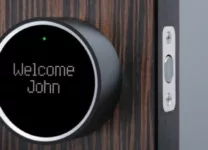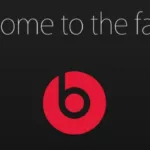Hilton Worldwide is shaping itself up to be a millennial friendly destination at any port of call with an extremely mobile friendly approach.
The hospitality industry is going to get a big push into the 21st century if the Hilton Hotel group has its way. The company is claiming to be the first major hotel chain in the world to allow 3 things:
Guests will be able to use their phones to check-in and lines and desk clerks be damned.
Forget the bellhop because guests will be able to choose their room by viewing a floorplan on their phone and picking the one nearest the elevator.
And, the piece de resistance, starting in 2015 Hilton will be installing hotel rooms with doors that can be opened with a guest’s phone.
So, just avoid the people, get into your room and live like the spartan mobile road warrior that you always wanted to be.
It appears the challenges are not limited to technology but are more to do with the traditional notions of hospitality. Hotel guests have some expectation of personal service implying that they’d like to see a friendly face and talk to a real person.
On the other hand, to woo millenials, Hilton recognizes that it has to ditch the human contact thing because it is just so inefficient.
You stand in line to give people the same data that you could have easily provided at booking and then you wait for them to pull up stuff on their computers and then talk you through your options and then, eventually, get you into a room that you may or may not like.
But going mobile is not the exclusive domain of Hilton. At the Hyatt Regency at O’Hare Airport in Chicago, guests are able to check-in while they are waiting for the hotel shuttle bus.
Once at the hotel, they are greeted by a real person, but armed with an iPad, who can swipe a credit card and issue a room key.
The desk is removed at check-in but not the personal touch. The process has proven to be positive for Hyatt and its guests.
Whatever hotel chains come up with in terms of technological integration, the fact remains that hospitality is changing and the definition of service is no longer limited to our traditional notions of personal service.
But, haven’t we gone through a similar process with phone support? We moved from getting through to people directly to being pushed through automated systems that are not always designed for the benefit of the company.
Are hotels going to tout digital services that may speed up one aspect of the experience but reduce the overall quality of the experience?
That may be a purely personal and subjective opinion. I don’t stay in many hotels but, when I do, particularly when I arrive late at night and there are few amenities or staff around, it feels like a hollow experience, a kind of sad situation to be in; I am just walking into my stable, albeit a really comfortable one, but it isn’t home and there is no one there to make me like it is homey.
Maybe I am just a Luddite.








